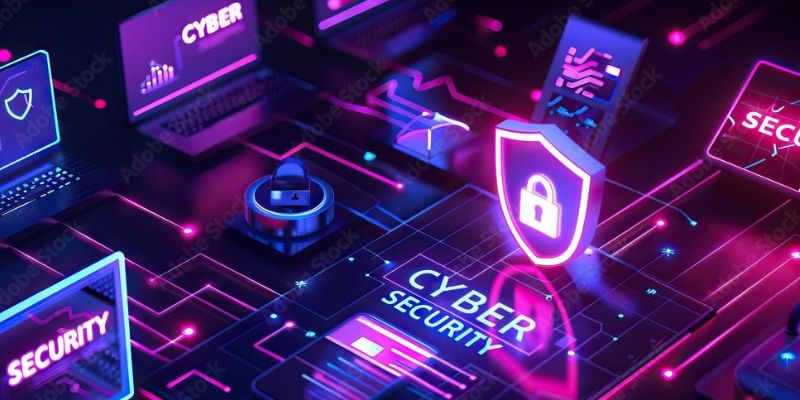
Personal data has become one of the most valuable assets in the online world. Every time we browse the internet, use mobile apps, shop online, or post on social media, we share bits of personal information. Unfortunately, this information can be misused if it falls into the wrong hands. Cybercriminals are constantly looking for ways to steal data such as passwords, bank details, or identity information. Protecting personal data is not just the responsibility of companies-individuals must also take steps to safeguard themselves. To learn how to defend against such threats effectively, enrolling in a Cyber Security Course in Coimbatore can be a great start. Let’s explore practical ways to protect personal data from cyber threats.
Use Strong and Unique Passwords
One of the simplest yet most effective ways to protect personal data is to use strong passwords. A strong password includes a mix of letters, numbers, and special symbols. Avoid using easy-to-guess words like your name, date of birth, or “12345.” It’s also important to create different passwords for different accounts. If one account is hacked, others will remain safe. Using a password manager can help you store and remember all your passwords securely without writing them down.
Enable Two-Factor Authentication
Two-factor authentication (2FA) adds an extra layer of security to your online accounts. It requires you to confirm your identity through another device or code after entering your password. Even if someone manages to get your password, they cannot access your account without this second step. Many email providers, banking apps, and social media platforms offer 2FA options – enabling it can make a big difference in keeping your data secure.
Be Careful with Public Wi-Fi
Public Wi-Fi networks, like those in cafes, airports, or shopping malls, are convenient but risky. These networks are often not secure, which means hackers can easily intercept your data. Avoid accessing banking accounts or making online purchases while connected to public Wi-Fi. If you must use it, consider using a Virtual Private Network (VPN), which encrypts your connection and keeps your activities private.
Keep Your Software Updated
Cyber attackers often take advantage of old software that has security flaws. Regularly updating your computer, phone, and applications ensures that you have the latest protection. Software updates not only bring new features but also fix security issues. Ignoring updates can leave your devices vulnerable to malware and cyberattacks. A Cyber Security Course in Madurai emphasizes the importance of patch management and software updates for maintaining system security.
Think Before Clicking Links or Downloading Files
Phishing attacks are one of the most common ways hackers steal personal data. These attacks often come in the form of fake emails, messages, or websites that look legitimate. They try to trick you into clicking links or downloading attachments that can infect your device. Always double-check the sender’s details and avoid clicking on suspicious links. When in doubt, visit the official website directly instead of following an email link.
Use Antivirus and Firewall Protection
Installing reliable antivirus software helps detect and remove malware before it can cause damage. A firewall adds an extra barrier that prevents unauthorized access to your network. Together, they form a strong defense against cyber threats. Make sure to keep your antivirus updated so it can recognize the latest forms of attacks.
Manage Your Social Media Privacy
Social media platforms contain a lot of personal information that can be used by hackers or even scammers. Review your privacy settings and control who can see your posts, photos, and personal details. Avoid sharing too much information, such as your location, phone number, or personal schedule. The less information you make public, the safer your online presence will be.
Secure Your Mobile Devices
Smartphones hold a lot of sensitive data-from photos and messages to payment details. Always lock your phone using a password, fingerprint, or face recognition. Be cautious while downloading apps and only use trusted sources like Google Play or the Apple App Store. Also, enable “Find My Device” or similar features, which help locate or erase your data if your phone is lost or stolen. Mobile security is an essential part of modern learning in a Cyber Security Course in Pondicherry.
Backup Your Data Regularly
Backing up your data ensures that you don’t lose important information if your system is hacked, damaged, or infected with ransomware. Store backups in secure places like external drives or cloud services with encryption. Regular backups allow you to recover your data safely without paying ransoms or losing valuable files.
Recognize and Avoid Online Scams
Cybercriminals often use fake messages or websites to trick people into sharing their data. These scams can appear as offers, job opportunities, or urgent security alerts. Always stay skeptical of deals that sound too good to be true. Verify sources before providing personal details or making online payments. Awareness is your first line of defense against cyber threats.
Educate Yourself About Cybersecurity
Learning about cybersecurity helps you stay alert and cautious online. There are many free resources, courses, and workshops that teach how to recognize cyber risks and respond safely. The more you know about how hackers operate, the easier it becomes to avoid falling into their traps. Encouraging friends and family to follow safe online practices also creates a safer digital community.
Protecting personal data is not difficult, but it requires awareness and regular effort. Simple habits like using strong passwords, keeping devices updated, enabling two-factor authentication, and avoiding suspicious links can go a long way in keeping your information secure. As cyber threats continue to evolve, being cautious and informed is the best defense. Every individual has the power to safeguard their personal data-by taking these steps, you can stay one step ahead of cybercriminals and enjoy a safer online experience. For those looking to enhance their skills, a Cyber Security Course in Tirupur provides the right guidance and expertise to stay protected in the digital world.
Also Check:
How Is Artificial Intelligence Transforming Cyber Security Defense Strategies?
